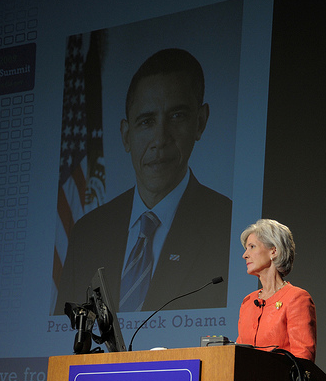ObamaCare's Parade of Bad News Continues: Some Employers May Self-Insure, Leaving Others With Higher Premiums

Another week, another ObamaCare glitch—and another reason that it may cause some health premiums to spike: On Monday, The New York Times reported that state health insurance officials are concerned that businesses with young and relatively healthy employees might choose to avoid many of the law's regulations by self insuring.
The problem is that when firms with lots of young, healthy workers self-insure, other employers buying into group health insurance plans are left with a smaller, relatively sicker group of workers. And that translates into higher premiums.
Here's a simplified way to think about it: If a group insurance plan had covered 100 people, some older and sicker and some younger and healthier, and 15 of the youngest and healthiest suddenly choose to opt out in order to start their own separate insurance pool, that leaves the membership of the original insurance plan older, sicker, smaller, and more expensive.
ObamaCare gives small employers with healthy workforces an incentive to jump ship and insure themselves. Via the Times:
Experts say the law makes self-insurance more attractive for smaller employers. When companies are self-insured, they assume most of the financial risk of providing health benefits to employees. Instead of paying premiums to insurers, they pay claims filed by employees and health care providers. To avoid huge losses, they often sign up for a special kind of "stop loss" insurance that protects them against very large or unexpected claims, say $50,000 or $100,000 a person.
Such insurance serves as a financial backstop for the employer if, for example, an employee is found to have cancer, needs an organ transplant or has a premature baby requiring intensive care.
In a report to clients last year, SNR Denton, a law firm, wrote, "Faced with mandates to offer richer benefits with less cost-sharing, small and midsize employers in particular are increasingly considering self-insuring."
Premiums will probably go up for a non-trivial number of individuals as a result of the way ObamaCare deals with employers who self insure. Given the double-digit premium spikes we're already seeing in states across the country, that's worrying enough.
The larger thread here, though, is that we're once again seeing that ObamaCare's design is pretty clunky, at best. From a purely practical perspective, the law looks like a mess. Every week or so we see another big report on some flaw or implementation challenge: The exchanges are hard to build, estimates of how many employers will eventually drop employee coverage have been revised upward, part time employees are seeing their hours limited, premiums are rising, states are declining to run the exchanges or participate in Medicaid, a number of big employers had to be given waivers in order to keep offering health insurance, the high risk pools were more expensive per beneficiary than expected and served fewer people, some insurers are warning that they may not participate in the law's exchanges—you get the idea. You don't, on the other hand, see a lot of things going especially well for the law, unless you count the victory at the Supreme Court. So sure, ObamaCare is surviving. But it's not exactly thriving.


Show Comments (52)